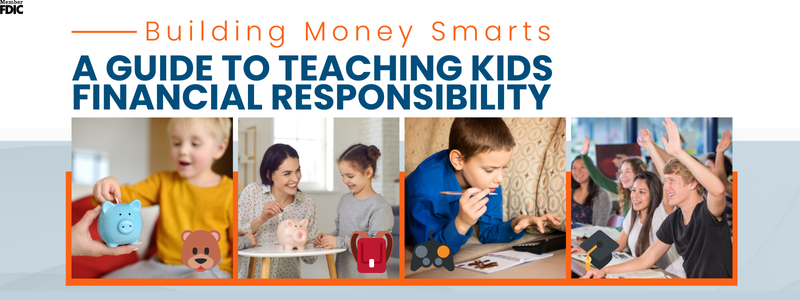Marion County Bank
Updated 3:31 PM CDT, Tue September 3, 2024
Published Under: Education

In today's digital world, equipping children with financial literacy skills is more important than ever. Teaching kids about money helps them become self-confident, motivated, and resilient. By instilling these principles early, we can help ensure they grow up to be financially responsible and independent adults.
At Marion County Bank, we believe that introducing children to money management early on is key to their future success. By teaching them the basics now, you can help them build the confidence and skills they’ll need to make smart financial decisions as they grow.
Why Financial Literacy Matters
Financial literacy involves understanding how money works and developing the skills to manage it effectively. Starting the conversation about spending, saving, and investing at a young age can have a lasting impact. Early exposure to financial concepts helps children build a solid foundation for making informed financial decisions throughout their lives.
Age-Appropriate Lessons and Activities
Early Childhood (Ages 3-5)
Introduce basic concepts like recognizing coins and the idea of saving with a piggy bank. Encourage saving for small treats to make the concept tangible and fun.
Elementary School (Ages 6-11)
Teach budgeting, differentiate needs from wants, and introduce savings accounts. Also introduce the concept of giving back or giving to a good cause with part of their money. Show real-life examples, such as how quickly interest builds up on a credit card balance, to illustrate financial responsibility.
Middle School (Ages 12-14)
Help set specific savings goals and discuss the benefits of consistent saving. Encourage part-time jobs or allowances/wages to adopt practical money management skills.
High School (Ages 15-18)
Introduce advanced topics like investing, credit scores, and budgeting for larger expenses such as college or cars. Emphasize long-term financial planning and decision-making.
How do you teach financial literacy?
Let's hear your ideas. Comment below with tools and techniques you have used to teach your kids financial literacy at home.

Haylli 11:01 AM CST, Mon November 18, 2024Reply
This article helps me a lot. I am a 5th grader doing my research on how to teach younger kids about money and wealth, so I am thankful for your information that you have to offer thank you much for this help, I will include your website in my paragraph that will go around my school thank you again.